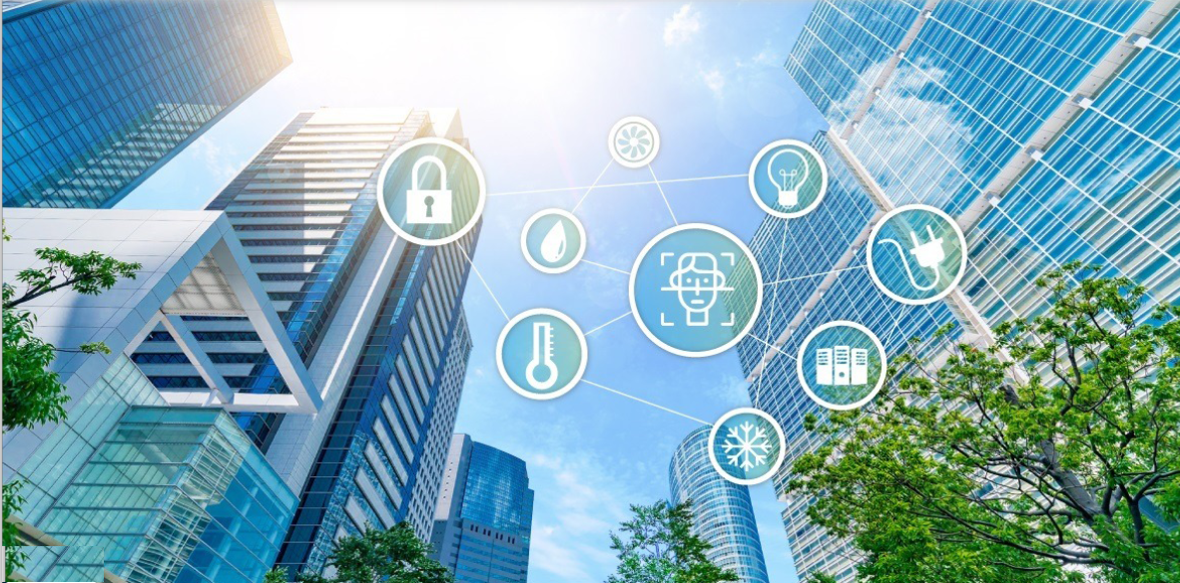The Concept of Smart Buildings
Smart building technology involves integrating advanced digital systems and automation to enhance the functionality and efficiency of buildings. It encompasses a range of technologies, including IoT sensors, building technology management systems, AI, and augmented reality. These technologies work together to optimize energy consumption, improve operational efficiency, and enhance occupant experience.

EURTM - Industrial measurement and automation equipment.
Energy Efficiency
Smart buildings employ intelligent energy management systems that track and control energy consumption in real-time. This leads to reduced energy wastage, lower carbon footprint, and significant cost savings.
Sustainability
Smart buildings contribute to a greener and more sustainable future by leveraging renewable energy sources and implementing energy-efficient measures.
Operational Efficiency
Smart building technology streamlines facility management processes, automates routine tasks, and enables predictive maintenance, improving operational efficiency and reducing downtime.
Key Features of Smart Buildings
Smart buildings stand out from traditional structures due to their distinctive features.
1
Integrated Building Systems
Smart buildings integrate various systems into a cohesive network, including HVAC, lighting, security, and fire safety. This allows for centralized control, efficient monitoring, and streamlined operations.
2
Real-time Data Analytics
They collect data from sensors and devices to gain insights into energy usage, occupancy patterns, and equipment performance. This data-driven approach enables informed decision-making and optimization of building operations.
3
Automation & Remote Control Building Technology
Smart buildings leverage automation technologies to optimize energy consumption, adjust environmental conditions, and manage security systems. Remote control capabilities enhance convenience and enable remote monitoring and management of building operations.
4
Adaptive Learning & Optimization
Advanced AI algorithms learn from historical data and user preferences to optimize building performance. This includes dynamic scheduling, predictive maintenance, and intelligent energy management.
